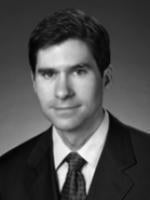The Environmental Protection Agency and Army Corps of Engineers on Tuesday announced a proposed rulemaking that would rescind the “Clean Water Rule” — which the agencies finalized in 2015 to revise the definition of “waters of the United States” subject to federal jurisdiction under the Clean Water Act — and recodify the prior regulatory definition of such waters. The action essentially would maintain the status quo, since the Sixth Circuit had already enjoined implementation of the Clean Water Rule nationwide pending the outcome of a legal challenge. But the agencies also said they intend to conduct a separate rulemaking to promulgate a new definition of waters of the United States that will consider the principles outlined in Justice Scalia’s plurality opinion for the Supreme Court in Rapanos v. United States, 547 U.S. 715 (2006). Both the repeal and the new definition would be consistent with direction given in an executive order signed by President Trump on February 28, 2017.
The proposed rulemaking comes as no surprise, given President Trump’s executive order and the agencies’ statement in the Federal Register on March 6, 2017, that they intended to rescind or revise the Clean Water Rule. But it indicates the EPA and Corps are moving quickly to pare back what many saw as an expansion of federal authority under the Obama administration. The Clean Water Rule sought to define waters of the United States consistent with Justice Kennedy’s concurring opinion in Rapanos. Unlike Justice Scalia’s opinion — which would have limited Clean Water Act jurisdiction to traditionally navigable waterways, tributaries with relatively permanent flows, and wetlands with a continuous surface connection to such waters — Justice Kennedy’s opinion also endorsed federal jurisdiction over intermittent and ephemeral streams, and wetlands lacking a continuous surface connection to other waters, if they have a “significant nexus” to a traditional navigable water.
If the EPA and Corps adopt a new definition consistent with Justice Scalia’s opinion, as yesterday’s announcement suggests, it will mark a significant reduction in federal jurisdiction, particularly in the arid West where ephemeral streams are common. But the practical effect of the change is hard to gauge — at least in California, where officials have already proposed an expanded permitting program under state law that would regulate fill of such features. Adding to the uncertainty, the rescission and eventual revision of the regulatory definition is sure to draw legal challenges that will likely drag on for several years.
The pre-publication version of the proposed rulemaking is available on the EPA’s website.



 />i
/>i

